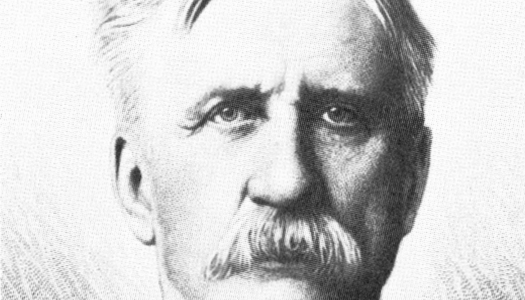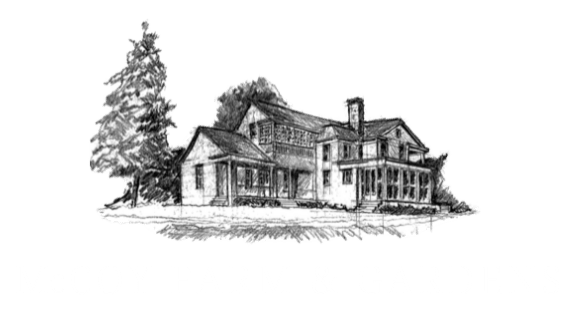Dr. Jonathan Waverly Bachman and three of his brothers fought for the Confederacy during the Civil War. Afterward, he endured the yellow fever epidemic of 1878. He was considered the city’s pastor, marrying and burying several generations of Chattanoogans.
Jonathan Bachman was one of a family of six sons and four daughters born to Jonathan and Frances Rhea Bachman of Sullivan County, Tn. The family was originally from Switzerland and had come to America in the time of William Penn. The family migrated to what would become Tennessee around 1779.
Jonathan W. Bachman was born in 1837 at the family’s Roseland homestead. He studied in a log schoolhouse before attending Fall Branch Academy, Blountville Academy and then Emory and Henry College. He taught a year, then in 1860 he entered Union Theological Seminary in New York, where his older brother, Nathan, attended. The two brothers “did much charitable and religious work among the rabble of Five Points, a place of evil eminence in those bygone days.”
But the war broke out in 1861 and the brothers returned south. Nathan was sympathetic to the Union, but did not fight. Samuel Bachman marched to Cumberland Gap, Ky., and contracted typhoid fever. He died after returning home.
John Lynn Bachman was a sergeant in Stonewall Jackson’s Brigade. Jonathan W. Bachman was first a private in the 19th Tennessee, but was soon promoted to chief clerk and aide to Col. D.F. Cooke of the 1st Tennessee. Bachman was with Gen. Robert E. Lee in the campaign in West Virginia, and was receiving orders from him when the body of Col. John A. Washington, kinsman of George Washington, was brought in. Bachman was with Stonewall Jackson in the mid-winter Romney expedition. Then, in the summer of 1862, he helped raise a new regiment in East Tennessee – the 60th Tennessee Volunteers. One of the recruits was his 17-year-old brother, Robert L. Bachman. In Mississippi, the regiment fought at Chickasaw Bayou and at Big Black River. Bachman was among those captured at the siege of Vicksburg. He was later exchanged, and he resumed command of his regiment in Tennessee and Southwest Virginia. He and Col. John Brownlow, who had been college classmates, chased each other through East Tennessee. After the war they resumed their friendship. Bachman served from October 1864 to the end of the war as a chaplain.
While on parole in 1863, he had married Evalina Dulaney, daughter of the pioneer physician, Dr. William R. Dulaney, of Blountville.
The four surviving Bachman brothers all became Presbyterian ministers. Dr. J.W. Bachman served congregations at New Providence and Rogersville, Tn., then was president of Rogersville College. He came to Chattanooga in 1873 as pastor of the First Presbyterian Church, which then worshipped at Seventh and Market. He was pastor of the church for half a century, presiding over the move to a handsome new sanctuary on McCallie Avenue. The Bachman home was nearby past Houston Street. It was a cottage that had been built in the 1850s. There was a portico and double front door and French windows across the front that extended to the floor. The Bachman lot extended back to Oak Street, and his daughters would take the family cows out to Fort Wood to graze. Dr. Bachman was “tall and slender with a quick military step, a light brown mustache, bright blue eyes and a smile of ineffable sweetness.” His daily routine was to rise early, work in his garden, and complete his sermons and literary work before noon. Then he would “visit his flock and anyone else in trouble, both black and white, and give all the help he could from his meager salary.”
He and his wife read regularly to the children from the Christian Observer, The Youth’s Companion, and other publications of the day. His daughter, Ann, by the time she was 10, had read The Gold Thread, Pilgrim’s Progress, Scottish Chiefs, Thaddeus of Warsaw, The Poems of Ossian, Don Quixote, Swiss Family Robinson and all of Charles Dickens and Sir Walter Scott.
During the yellow fever scourge, Dr. Bachman could be seen on the streets of Chattanooga at all hours, ministering to the sick. At home he would read aloud each morning the 91st Psalm: “Surely He shall deliver thee from the noisome pestilence.”
It was Dr. Bachman who delivered the dedicatory prayer when the Walnut Street Bridge was opened in 1891. He did the same for the Market Street Bridge in 1917, and his son, Nathan Lynn Bachman, drove the first auto – a Hudson Supersix – over it.
On Oct. 9, 1923, on his 86th birthday, Dr. Bachman was made pastor emeritus at First Presbyterian. When he died the following year on Sept. 26, his body lay in state at the church and thousands trooped by “to look their last upon the beloved face.” There were 5,000 people at the funeral.
Mrs. Bachman had died in 1898. Of their 10 children, the survivors in 1924 were Mrs. Frances Magill, Mrs. Charles R. Hyde, Mrs. C.E. Buek and the son, Nathan. Eva Dulaney Bachman, the youngest daughter, had married C.E. Buek, president of the Frictionless Metal Co.
Nathan Bachman, who was born during the yellow fever epidemic, had studied law at the University of Virginia and opened an office at
Chattanooga. He became city attorney, then Circuit Court judge and associate justice of the Tennessee Supreme Court. He resigned in 1924 to run for the U.S. Senate, but lost to L.D. Tyson and resumed his law practice. Then he was appointed by Gov. Hill McAllister in 1933 to the
Senate to fill the vacancy when Cordell Hull resigned. In the halls of Congress, “Nath” Bachman was known as “perhaps the greatest raconteur that has graced the Senate body since the days of the illustrious Robert Love Taylor. His homely philosophy was well known to his colleagues who daily gathered about him in the cloak room to be regaled by his plain and fancy yarn spinning.” Senator Nathan Bachman in 1904 married Pearl McMannen Duke of the well-known North Carolina family. Their daughter, Martha, married Thomas McCoy, an attorney from Asheville, N.C. Martha Bachman McCoy remained on Signal Mountain. She died at her home on the mountain on May 31, 2004. A lifelong member of First Presbyterian Church, she received her early education at Mrs. McIntyres and graduated from the Girls Preparatory School and Sweetbriar College. An active leader in the community, Mrs. McCoy served on the boards of Little Miss Mag Day Nursery, the Girls Preparatory School, the Red Cross and Family Service Agency. For many years she was a dedicated volunteer at the Moccasin Bend Mental Health Institute.
She was survived by her daughter, Saly McCoy Garland, and her son-in-law, John Vaughan Garland; three grandsons, John Vaughan Garland Jr., Thomas Jerome Garland and Elliot Shanklin Garland, and dear friend, Neavon Hatfield.


